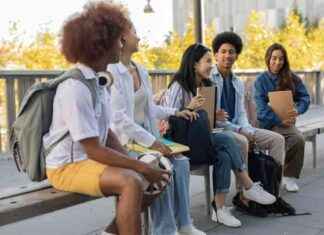The Preliminary Questions Chamber of the International Criminal Court (ICC) has decided that the Prosecutor’s Office of the Court resume its investigation into crimes against humanity that occurred in Venezuela. The investigation had been suspended since April of last year thanks to an appeal filed by the Bolivarian revolution, which claimed to have undertaken the investigation of the crimes.
The request by prosecutor Karim Khan, made in November of last year, and the testimonies of 1,875 victims of Chavismo have weighed more than the observations of the Venezuelan ruling party, repeated to Khan himself at the beginning of June during the start-up of an office of the Prosecutor’s Office in Caracas.
“The Chamber concluded that although Venezuela is taking some investigative measures, its internal criminal proceedings do not sufficiently reflect the scope of the investigation planned by the Prosecutor’s Office. The focus seems to be generally on the direct and/or lower-level perpetrators,” it argued. the ICC, who has also defined periods of investigative inactivity as “inexplicable”. “They do not reflect the scope of the case,” they concluded in the report.
This process began in 2018 thanks to the initiative of Argentina, Canada, Colombia, Chile, Paraguay and Peru. The decision, received with euphoria by human rights and civil society organizations in Venezuela, was made public one day after the International Day in Support of Victims of Torture, precisely one of the crimes against humanity investigated along with extra-summarial executions. , forced disappearances, arbitrary arrests and rape.
“It is a historic step towards justice,” reacted the NGO Provea, while Delsa Solórzano, a candidate for the opposition primaries, assured that it was a new triumph for the victims and “a new setback for the dictatorship.”
“Bravo, Venezuela. Let’s move forward!”, congratulated Tamara Suju, director of the Casla Human Rights Institute, whose testimonies provided to the ICC reflect how torture is applied systematically not only in the headquarters of the General Directorate of Counterintelligence Criminal (DGCIM) and the Bolivarian Intelligence Service (SEBIN), also in clandestine detention centers.
One of the Chavista leaders who is most marked by the continuation of the investigations is the head of the Public Ministry, Tarek William Saab, “key for his incoherent reports, without demonstrable data, for the paralysis of the files, the disorder and lack of attention to the victims. They have been fundamental elements for international justice to advance”, stressed the former prosecutor Zair Mundaray, exiled today in Colombia.
“It is necessary to evaluate what position the Maduro government will adopt before the ICC decision. Rhetorically, it has been preparing to ignore the process as politically biased, but days ago it signed an agreement for the Court’s Prosecutor to open an office in Caracas,” he warned. internationalist Mariano de Alba, senior adviser to the Crisis Group.
Chavismo and its propaganda apparatus have viciously criticized Khan, after he assured that Chavista forces had subjected the civilian population to a “systematic attack.” “Prejudiced vision that exploits justice and human rights for political purposes” that of the prosecutor, according to the government of Caracas, who also endorsed “the fallacies of the media and geopolitical aggression launched to accuse Venezuela of alleged crimes against mankind that have never occurred”.
Prosecutor Khan has become the great stone in Maduro’s shoe in the midst of the laundering operation launched by his main allies, with the Brazilian president, Lula da Silva, and the Colombian, Gustavo Petro, at the head.
According to the criteria of The Trust Project






